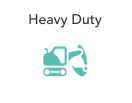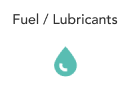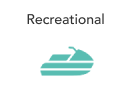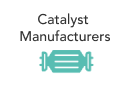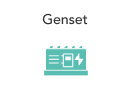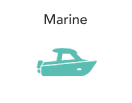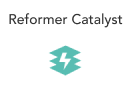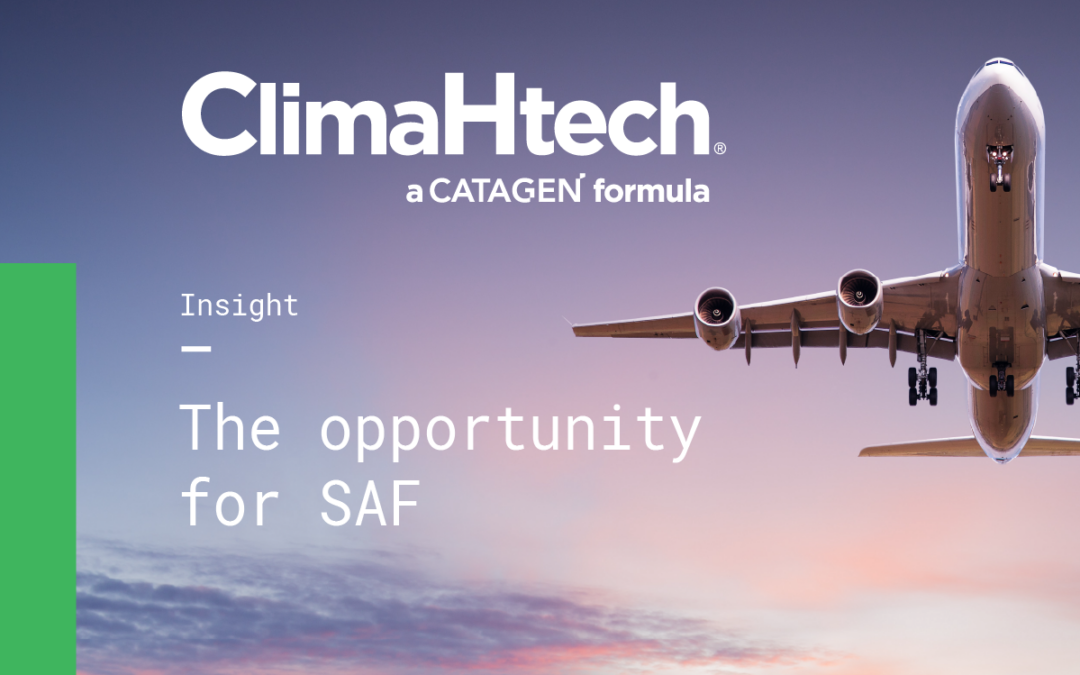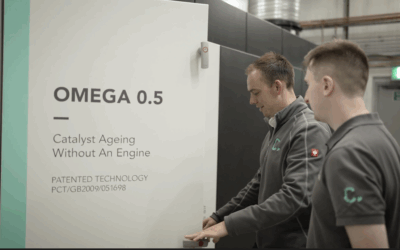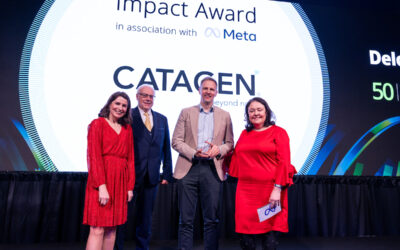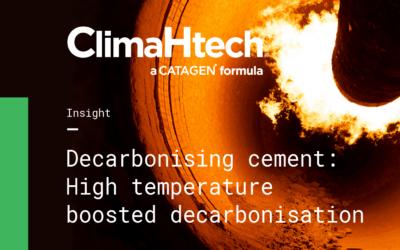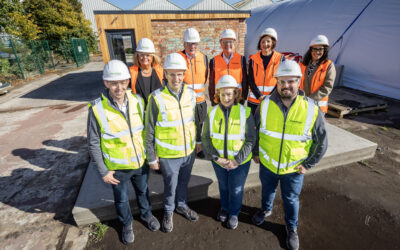Introduction: Aviation’s Growing Carbon Footprint and Sustainable Aviation Fuel
In 2022, aviation contributed around 2.5% of global CO2 emissions. It is the fastest-growing mode of transport compared to rail and road and is a hard-to-abate sector, so its percentage of global emissions is expected to increase. Some 100,000 flights take off and land every day across the world.
A single long-haul flight can create more carbon emissions in a few hours than the average person in 56 different countries will generate in an entire year. (World Economic Forum).
The International Air Transport Association (IATA) estimates that Sustainable Aviation Fuels (SAFs) could contribute around 65% of the emissions reduction needed by the aviation sector to reach net zero in 2050, with new technologies, infrastructure/operations and offsetting/carbon capture making up the remainder.
The SAF market is attracting significant interest due to its global scale and need, estimated at USD 576.18 million in 2022 and is expected to grow by 57.5% from 2023 to 2030. By 2050, it is expected to be a USD 402 billion industry.
Global Sustainable Aviation Fuel Adoption and Targets
SAFs are liquid fuels which, in general, can reduce emissions by up to 80% compared to fossil jet fuel and countries around the world are introducing mandates for SAF use at airports. The ReFuelEU aviation regulation has a target of 2% SAF at EU airports by 2025 rising to 70% by 2050. The UK has set a similar 2% SAF mandate in 2025 increasing to 10% by 2030 and to 22% in 2040. The USA has a production target of 3 billion gallons of SAF by 2030 with a long-term 2050 goal of meeting 100% of aviation fuel demand with SAF by 2050 which is expected to be c. 35 billion litres of SAF.
In addition, airlines are also setting their own targets. For example, IAG has set a target of 10% SAF and Ryanair has a target of 12.5% by 2030. Virgin Atlantic also showcased the feasibility of flying using SAF in November 2023 from London Heathrow to New York JFK.
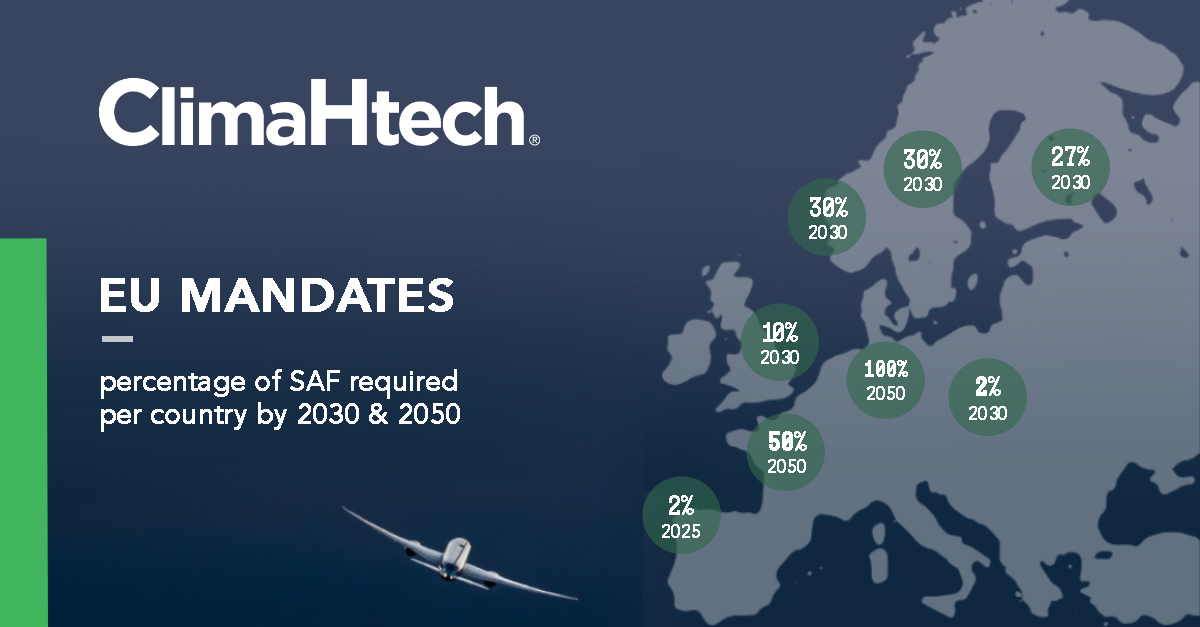
Sustainable Aviation Fuel production:
In 2022, global SAF production is estimated to have been between 240 and 380,000 tonnes (300 to 450 million litres), covering around 0.1% to 0.15% of total jet fuel demand.
See below for a map visualisation of facilities worldwide which are in the process of developing SAF production:
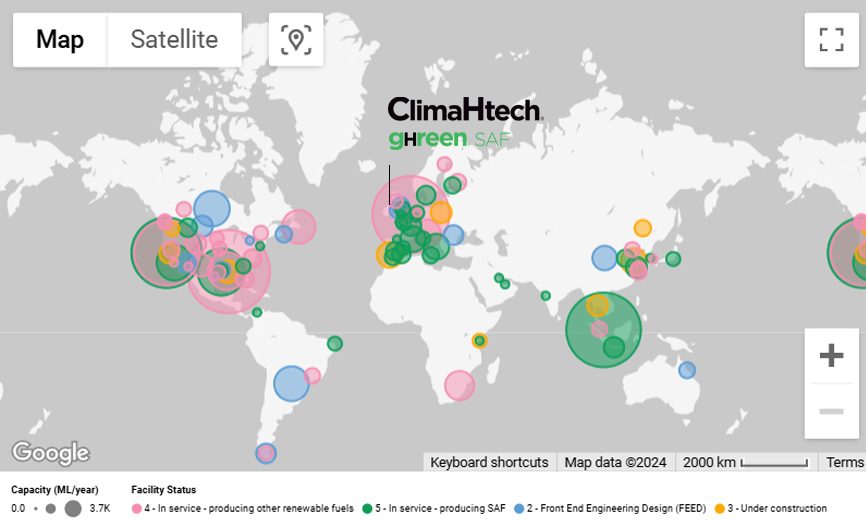
IATA predicts that 449 billion litres will be needed per year by 2050 so a significant ramp up of SAF production is needed to achieve net-zero emissions.
The U.S. Congress introduced the Sustainable Skies Act in May 2021, aiming to boost incentives to produce and use SAF. The SAF tax credit starts at $1.25 per gallon for blenders that supply SAF with a demonstrated 50% or greater lifecycle greenhouse gas savings compared to conventional fossil jet fuel. There is a maximum tax credit of $1.75 linked to the sustainability of the SAF. In addition, some states have additional incentives. The Inflation Reduction Act also introduced $300 million in R&D grants until September 2026.
The UK Government supported SAF production scale-up via a £165 million Advanced Fuels Fund facility. In April 2024, it published a SAFs revenue certainty mechanism consultation paper to support the SAF industry in the UK. The aim of the mechanism is to reduce the risks of uncertain revenues for emerging SAF plants to help attract investment into UK SAF projects and increase domestic SAF production to contribute to the UK SAF mandates. In the Government response to the second consultation on the SAF mandate, buy-out prices of £4.70 and £5.00 were set for the main obligation and the power-to-liquid obligations, respectively. It provides a method of compliance where suppliers are unable to secure a supply of SAF, preventing excessive costs being passed onto consumers.
In the EU, aircraft operator emissions fall under the EU Emissions Trading Scheme and aircraft operators using SAF that meets sustainability criteria benefit from zero emissions, reducing their overall emissions and the allowances they need to purchase. 20 million SAF allowances have been set aside until 2030 to incentivise the transition away from fossil jet fuel. SAF has been included in the EU Net-Zero Industry Act to remove administrative barriers for the construction of new SAF plants.
SAF Clearing Houses have been set up in the USA, the UK and the EU to support the development, testing, qualification and production of SAFs. In fact, CATAGEN was the first company to submit a SAF sample to the EU SAF Clearing House in June 2024 (PRESS RELEASE : CATAGEN first to submit sustainable aviation fuel sample to EU SAF Clearing House – Catagen).
ClimaHtech E-FUEL GEN Technology:
CATAGEN’s pioneering ClimaHtech E-FUEL GEN technology produces e-fuels including Sustainable Aviation Fuel (SAF) by combining renewable hydrogen and sustainable carbon dioxide using renewable electricity.
Can produce a range of e-fuels
Including e-diesel, e-kerosene, e-gasoline, e-methanol and e-methane.

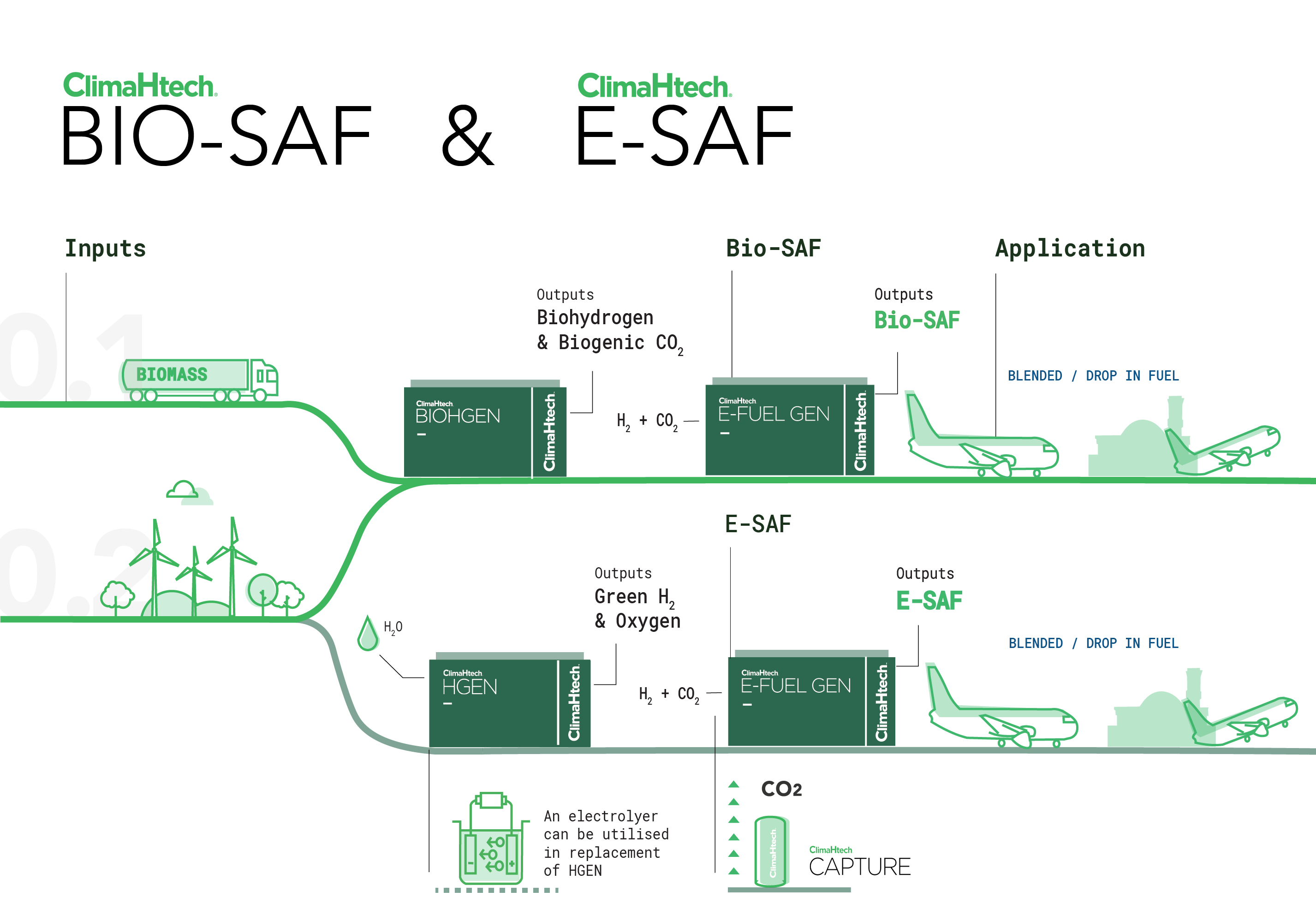
References:
https://www.iata.org/contentassets/d13875e9ed784f75bac90f000760e998/saf-policy-2023.pdf
SAF Production Facilities (icao.int)
fact-sheet—us-and-eu-saf-policies.pdf (iata.org)
Sustainable Aviation Fuels Revenue Certainty Mechanism (publishing.service.gov.uk)
UK Sustainable Aviation Fuels (SAF) Clearing House | UK SAF Clearing House
SAF-Clearing-House_services (europa.eu)
Bio: Dr Andrea Ahern
Andrea is passionate about the key role that hydrogen and its derivatives can play in delivering a balanced pathway to net zero. She is currently VP of Net-Zero Projects IE and ClimaHtech SAF Lead. Andrea played a key role in the organisation of Hydrogen Ireland’s conferences in Belfast (2023) and Dublin (2022).
Interested in partnering with us or learning more about our E-FUEL GEN technology? Contact andrea@catagen.com

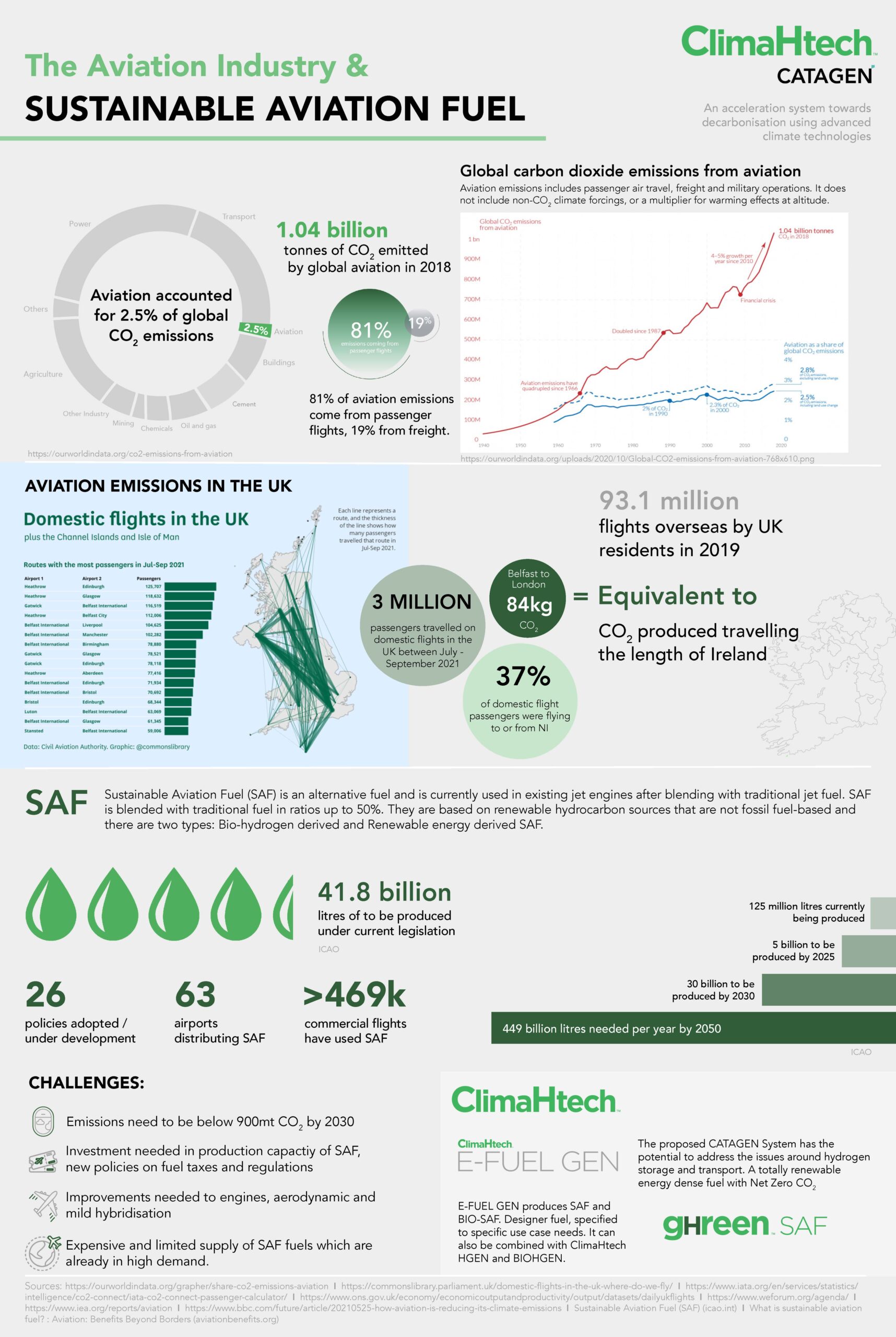
CATAGEN Marks Four Years as Official Ducati Supplier in 2026, Strengthening Technical Partnership
CATAGEN marks four years as Official Ducati Supplier in 2026, supporting advanced catalyst ageing, durability validation and global emissions compliance.
EICMA 2025 Reflections: Building a Cleaner, Collaborative Future for Euro 5+ Compliance
In this EICMA 2025 Q&A, Amanda Martin explores Euro 5+ compliance, sustainable emissions testing, catalyst ageing and how OEMs are working to achieve consistently low tailpipe emissions through reliable validation data.
CATAGEN Expands Green Emissions Testing Services into North America Following Breakthrough Year and Success at Automotive Testing Expo
announcing plans to expand into North America following a year of record global growth and a highly successful presence at the Automotive Testing Expo in Novi, Michigan.
CATAGEN ranked Fifth Fastest Growing Tech Company and Awarded Impact Prize at Deloitte 2024 Technology Fast 50 Awards
CATAGEN, a leader in green emissions testing and net zero technologies, is delighted to announce its recognition as one of Ireland’s fastest-growing technology companies at the Deloitte Technology Fast 50 Awards 2024. Ranking fifth overall, CATAGEN also received the prestigious Impact Award, presented in association with Meta.
Decarbonising Cement: High temperature boosted decarbonisation
CATAGEN’s ClimaHtech system accelerates the decarbonisation of cement production by displacing...
CATAGEN welcomes US Net Zero Advisory Board to it’s headquarters in Belfast
CATAGEN welcomed Andy Marsh CEO Plug Power, Kevin Devlin CEO Renewable Power...


